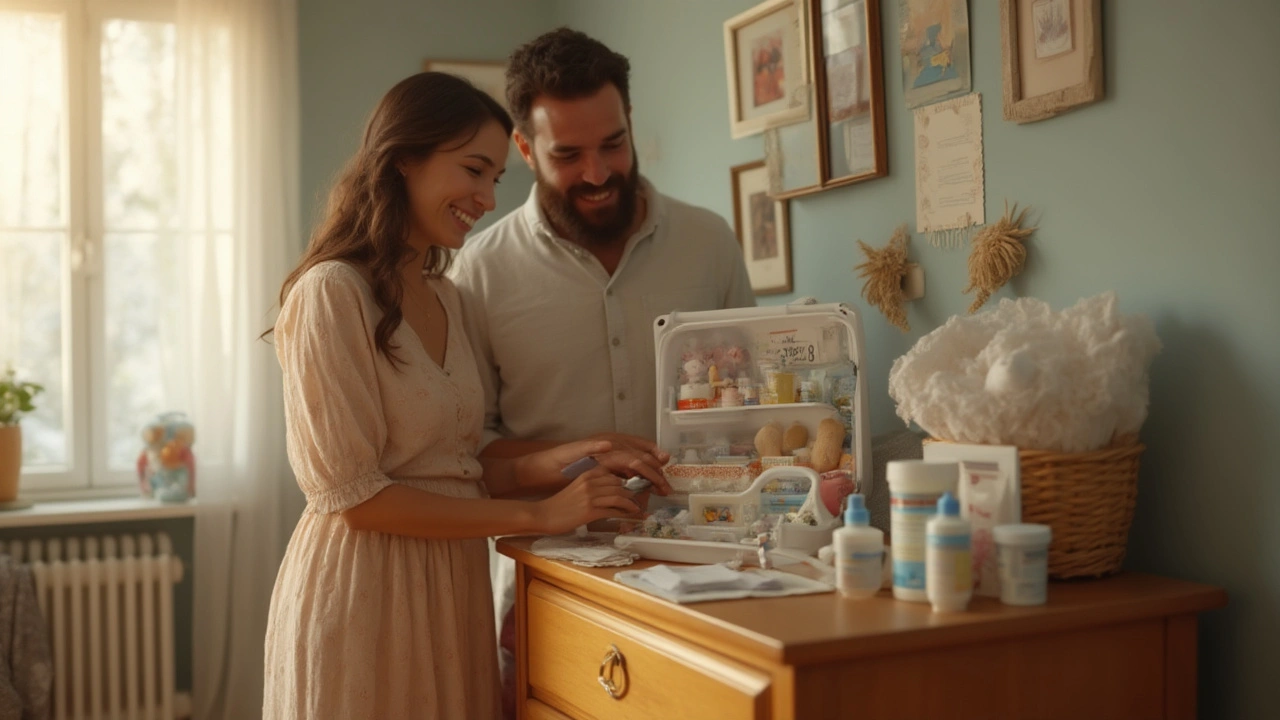Emergency Kit for Babies: What Every Parent Needs to Know
Ever thought about what you'd grab for your baby if you had to leave home at a moment’s notice? Emergencies don’t wait until you’re organized, and things can get stressful fast if you haven’t planned ahead. Having an emergency kit made just for babies isn't just smart—it's a total game changer for your peace of mind.
So, what should you put in a baby emergency kit? Start with diapers—pack more than you think you’ll need, since you never want to be caught short. Next up, keep a stash of wipes and a small bottle of baby wash; cleaning up can make a world of difference when things go sideways. Don’t forget a couple of changes of clothes in various sizes; babies grow fast and one mess can ruin an outfit in seconds.
Formula or breast milk (in ready-to-feed bottles, if possible), plus a couple of sterilized bottles, are a must even if you’re nursing—because… you never know. Toss in some non-perishable snacks for older infants like puffs or cereal bars. If your baby’s on medications or has allergies, pack extra doses and a copy of any important prescriptions or medical info.
A well-packed kit also needs a cozy blanket, a comfort toy, and a pacifier or two. Calm and comfort go a long way during chaos. If your baby is in the teething phase, small teething toys can actually save your sanity in tense moments. Don’t skip on a small first-aid kit with baby-safe fever medicine and bandages. A digital thermometer is tiny but incredibly useful.
Documents matter in emergencies. Include a photo of you with your baby, copies of birth certificates, and health insurance cards in a zipped plastic bag. If you get separated, these can help authorities get you back together quickly.
Now, where should you keep this kit? Stash one in your trunk and another near the front door at home. Try to update it every two or three months, swapping out clothes as your little one grows and checking expiration dates on formula and meds. It’s a minor hassle for major peace of mind.
Even small things—like an extra phone charger, a flashlight, trash bags for dirty diapers, and hand sanitizer—make a difference. Emergencies could mean anything from power outages to evacuations. When things get scary, knowing your baby’s needs are covered lets you focus on the big picture instead of scrambling for basic supplies.
Once you have your kit together, talk it through with anyone who helps care for your baby. Grandparents, babysitters, neighbors—everyone should know where to find it and how to use it. The more your support squad is on board, the less you’ll have to explain in the heat of the moment. A little planning—one kit—keeps a whole lot of worry off your plate when life gets unpredictable.

Newborn First Aid Kit Essentials: What Every Parent Should Have
Get the inside scoop on must-have newborn first aid kit essentials. Learn what every parent should keep handy—from thermometers to nail clippers—for peace of mind.
Read More